Opioid addicts frequently discover that recovering from their addiction is more difficult than anticipated. They can believe that addiction is something that they can overcome at any time or that they are an outlier. This is possible with behavioral addictions to behaviors including eating, having sex, gambling, shopping, and exercising.
Anyone dealing with a behavioral addiction, such as opioid addiction, as well as a substance use disorder (SUD) or alcohol use disorder (AUD), must learn how to overcome their addiction. Recognizing that there is a problem and knowing more about how to stop using are crucial initial steps in recovery, but it can be difficult.
This blog covers the steps you must take to recover from opioid addiction and provides advice that can be useful.
Decide to Change
One of the most crucial steps in recovering from opioid addiction is making the decision to change. It shows that you are aware of the issue and want to solve it when you admit that a change is necessary.
Choosing to change and figuring out how to do it are processes that frequently require time. Because it entails deliberating whether and how to change, this is known as the contemplation stage.
Ambitious objectives are not always the best, though. Setting a goal you can actually meet is preferable to plan to stop “cold turkey” and then relapsing, which can be riskier than just carrying on as you were. At this point, speaking with a physician, addiction specialist, or psychologist can be especially beneficial since they can explain the risks and suggest ways to mitigate them.
Prepare to Change
Getting rid of paraphernalia and other items that could make you want to use an opioid or engage in risky conduct is necessary to achieve this. You might also need to adjust your routine to spend less time in places or with individuals who make you crave drugs. Choosing your strategy for quitting your addiction and gathering the tools you need to succeed are two other preparation strategies.
Seek Social Support
The hardest preparations can be dealing with interpersonal interactions. Some of the relationships that addicts are in may be centered around their addictive tendencies. Setting boundaries within those relationships and joining a self-help organization like Alcoholics Anonymous (AA) can be beneficial in these situations since they can find a community of individuals who share their experiences. Spend time getting in touch with loved ones who will help you achieve your goals.
Reach Out to Healthcare Providers
It is a good idea to consult a doctor or the best addiction treatment center in Florida about opioid addiction to determine whether you require medical assistance to stop using. To help reduce withdrawal symptoms, there are various pharmaceutical choices. You may need medical monitoring while going through detox.
The withdrawal stage may make any underlying mental health issues, such as anxiety or depression, worse. While overcoming these obstacles, healthcare professionals can be incredibly supportive and helpful.
Addiction Voice Recovery Center offers a wide range of holistic treatments aimed at getting directly to the root cause of the addiction and addressing any underlying reasons which may be contributing to opioid addiction.
Getting free from opioid addiction is possible. Following these steps can help you be successful and provide hope for the future.

